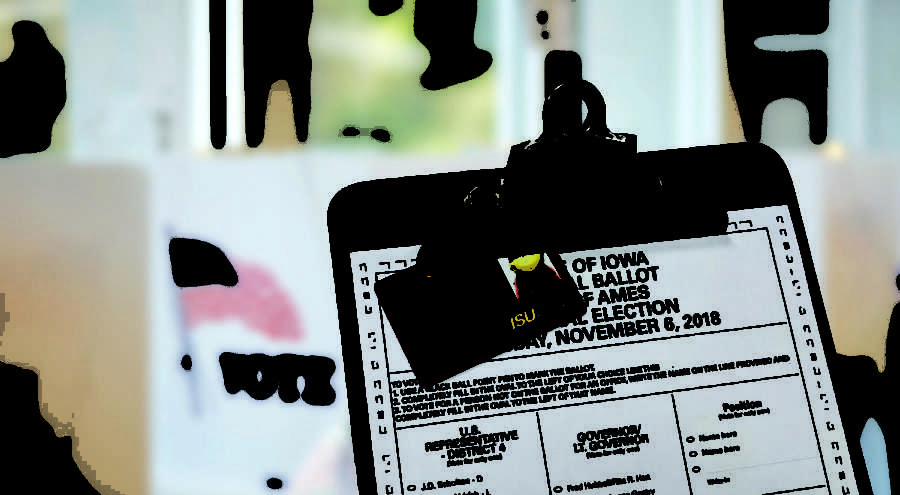Transgender people adversely affected by voter ID laws, but not in Iowa
Student IDs are not currently accepted by polling places as a valid voter ID as they don’t have an expiration date.
November 5, 2018
Across the country, some states have implemented a requirement for a photo ID in order to vote, but these IDs can adversely affect transgender individuals when voting.
As of this election, Iowa voters may have been requested to show an ID, but were not required to show any form of photo identification which separates Iowa from the other state’s laws that could negatively impact turnout among transgender individuals.
Current forms of acceptable identification in Iowa include: Iowa driver’s license, Iowa non-operator’s identification card, U.S. passport, U.S. military card, veteran’s identification card or a current and signed voter identification card.
For individuals who are registered to vote but are unable to present a form of identification: residential lease, property tax statement, utility bill, bank statement, paycheck, or a government check can be used instead of a traditional ID.
In 2016, a study was done by the Williams Institute to study how voter ID laws in eight of the states with strict voter registration policies affected transgender individuals voting.
“When presenting identification that did not accurately reflect their gender, many respondents reported being harassed (41 percent), being asked to leave the venue where they presented the identification (15 percent), and being assaulted or attacked (3 percent),” according to the Williams Institute in 2016.
Along with those statistics, the Williams Institute also stated that over 34,000 transgender individuals may have faced some form of barrier or disenfranchisement to voting in 2016.
“Federal, state, local governments and even campus may have different ways of navigating people through name changes, gender marker changes and then presentation,” Freihoefer said. “All of these things can come to a head at the polling place and that can be a really scary place for students to go vote.”
The transgender community has an estimated population of 1.4 million people as of 2016, according to NPR, or approximately .43 percent of the total U.S. population.
“A student’s vote can have an influence, go vote,” said Brad Freihoefer, the director of the Center for LGBTQIA+ Student Services.“I think everyone needs to vote. It’s your opportunity to provide a voice, to select your representative. Someone advocating for your needs and things you deem a priority. [The Center for LGBTQIA+ Student Success] wants to encourage every student to vote.”







